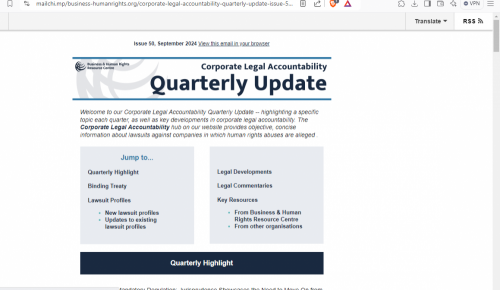|
The Case for Mandatory Regulation: Jurisprudence Showcases the Need to Move On from Self-Regulation in Tech
The past decade has seen evolution of regulatory norms applicable to the tech sector simultaneously with a rising number of human rights violations implicating these companies. The rapid growth of tech firms has often outpaced the development of laws to police them, resulting in a dangerous reliance on self-regulation, courts, and after-the-fact measures as governments struggle to keep up with the pace and harms of the industry.
Today’s tech landscape is consequently defined by a pervasive lack of accountability. Operating on a global scale, tech companies often evade national laws and regulations.
Courts and law enforcement agencies are increasingly taking note of company failures in addressing misinformation, enabling surveillance, work exploitation, and infringing on personal privacy – and their consequent harms for society. For instance, the New Mexico Attorney General lawsuit against Meta’s CEO on the exploitation of children on the company’s platforms; and the recent criminal complaint against Bookings.com for allegedly profiting from listing rental properties in illegal Israeli settlements.
Some tech companies have attempted to address the lack of clear regulation by establishing their own oversight boards. While these initiatives represent a step toward greater accountability, such boards often lack the independence and enforcement power, and are frequently criticised for addressing issues only after they escalate into public scandals.
As these harms begin to more frequently surface in courts across the world, there appears a growing global awareness of the role of regulation to mitigate and prevent them. The European Union (EU) has taken a leading role, enacting several regulations seeking to establish mechanisms and responsibilities based on business and human rights principles to hold tech companies accountable. In Brazil, similar regulations have been enacted, with authorities actively enforcing them to fight abuses facilitated or caused by tech companies. While these measures are not without flaws, they represent powerful steps in the right direction.
Where an industry moves as quickly as the tech sector does, the onus should be on companies themselves to identify and mitigate the core human rights risks of their products – and they must be held accountable for failing to identify and address these risks. Mandatory human rights and environmental due diligence initiatives such as the EU’s Corporate Sustainability Due Diligence Directive (CSDDD), in combination with other, issue-specific tech laws, offer significant promise for a better-regulated industry.
|

